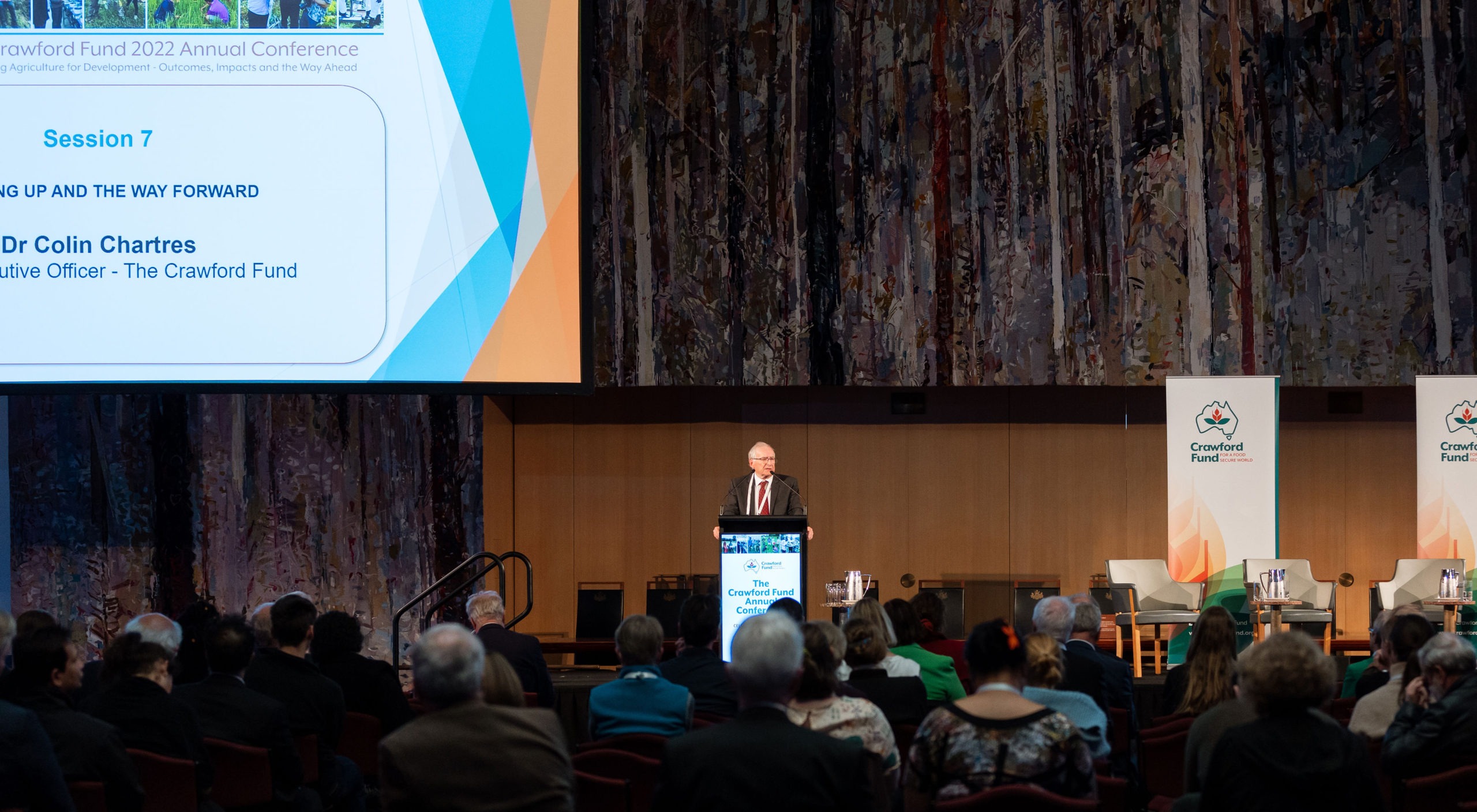

CEO reflection on the 2022 Crawford Fund Annual Conference
November 24, 2022

This year our conference topic was Celebrating Agriculture for Development – Outcomes Impacts and the Way Ahead. Our CEO, Dr Colin Chartres provides this reflection of the event as we look to the launch of our “Doing Well by Doing Good” reports at the National Press Club on 1 December.
Whilst my closing remarks will be included in the Conference Proceedings, I wanted to highlight a few key points in this blog.
The conference speakers clearly demonstrated the progress made in international agricultural R&D over the last 50 years. This is evident not only in the fact that we have managed to feed almost 5 billion more people, but also from the fact that investment in this area returns up to $10 for every dollar. That’s not to say all is rosy given that there are still 1 in 9 people undernourished, women in many agricultural societies are still disadvantaged and agricultural production is still lagging in Africa, which is concerning because of the rapid population growth on that continent. Furthermore, there is concern that investment in international agricultural R&D is declining at a time when food security is again becoming an international concern.
My next observation was that the challenges we are facing are changing. Whilst increasing productivity is still critical, R&D has evolved over the last 25 years, at least. Today, nutritional quality of food is much more important than straight calorie content, water scarcity is a critical limitation on production and climate change, biosecurity, Covid and conflict are impacting food supply chains, with poor countries bearing the brunt.
Similarly, there have been major changes to previous linear models of adoption, with more emphasis on participatory research and gender equity, more emphasis on capacity building and a greater understanding of the criticality of having good policy frameworks to facilitate the uptake of innovation.
Our conference speakers raised the prospect of several emerging technologies that will play key roles in food security in the future. These included biopesticides, greenhouse mitigation technologies in rice production, sustainable intensification, improved water management and reuse. Once again, the issue of reducing consumer generated food waste was also highlighted.
Our afternoon panel chaired by the Hon. John Anderson, emphasised that globally as well as the serious risks posed by climate change, we risk seeing the breakdown of the liberal, rules-based order that was established at the end of the 2nd World War that has facilitated trade and, to some extent, the development of public goods in the international agricultural R&D arena. The geopolitical situation exemplified by the war in Ukraine and the resulting food and energy crises, political uncertainty in East Asia and the increasing risks of pushing developed country policies including banning GMOs and preferencing organic products on food scarce poorer countries are of particular concern. We now see Egypt at serious risk of being unable to pay for food imports and Sri Lanka suffering the consequences of going organic overnight! Similarly, increasing energy costs will be devastating for fertiliser production and use and thus have flow on price impacts for food in all countries.
Our morning keynote speaker, Phil Pardey, commented that we are running fast to stay still. I think this summed the current situation up really well. Whilst we have a lot to celebrate in terms of successes in feeding a growing population, we need to lobby significantly for increased international investment in agricultural R&D to meet the challenges ahead. Next week the Crawford Fund will be launching its update of Doing Well by Doing Good and will be highlight the challenges and investment needs as well as emphasising the benefits that have returned to Australian agriculture from investment in the CGIAR.
Finally, I would like to publicly thank all of our speakers, chairs and listeners and our Sir John Crawford Oration speaker Dr Audrey Aumua, who spoke so passionately about Pacific agriculture.




